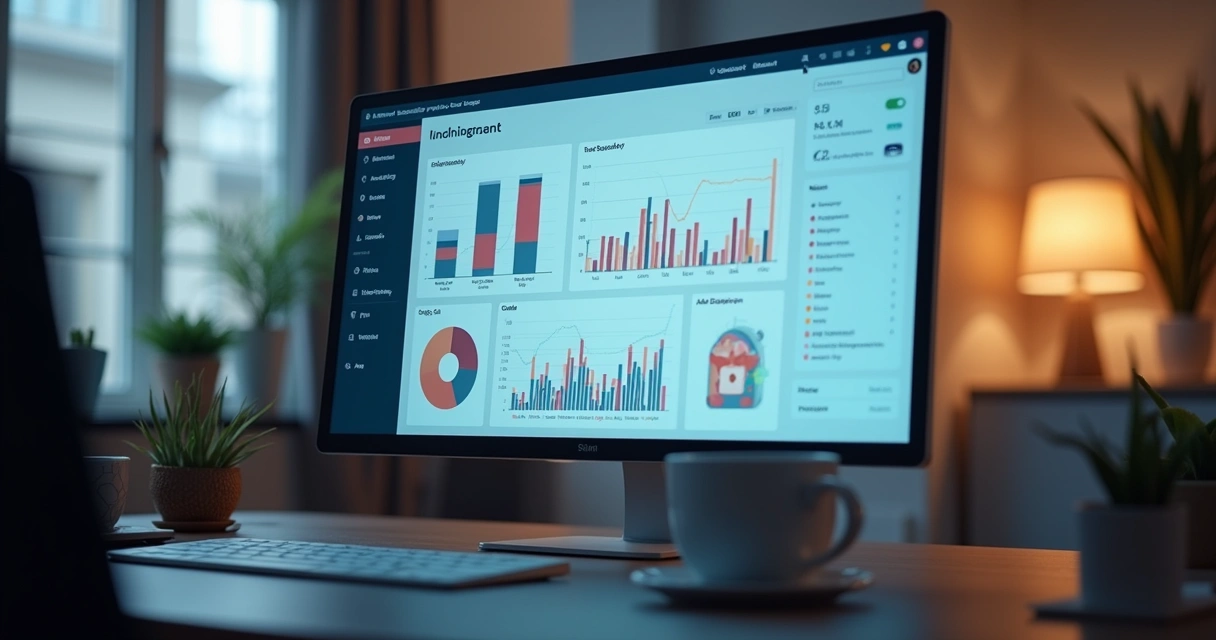Over the years, I’ve seen technology change quickly, especially in web development. Laravel, a PHP framework that started as a fresh alternative to older, clunky methods, grew into a platform used by both startups and established organizations building serious web applications. By 2026, choosing who to trust for your next Laravel project gets more complex, not less. There’s a sea of options, glowing portfolios, wild claims of fast delivery and bug-free code. I want to help you see through the fog and choose smarter.
This isn’t a checklist you tick and forget. It’s a set of stories, questions, silent signals, and—honestly—a bit of gut instinct you develop once you’ve worked in the trenches for 16 years like I have. I hope that by the end, you’ll have a deeper feel for what matters, what’s red flag territory, and why someone like myself, with experience as both a senior software engineer and hands-on consultant, might just be your best bet for full-stack Laravel projects.
Understanding Laravel’s role in modern web application development
Before you decide who should build your application, you should grasp why Laravel became so trusted for business-critical software. Back in the late 2010s, PHP was often dismissed as old-school—then Laravel emerged, bringing:
- Elegant code structure with MVC (Model-View-Controller) separation
- Strong security features out of the box
- Integrated tools for authentication, email, API, testing, and queues
- A thriving global community with thousands of packages and resources
- Easy integration for cloud hosting, containers, and continuous delivery pipelines
In my own work, I’ve relied on Laravel not just for its quick project setup, but because I know it scales. It’s now found behind high-traffic SaaS products, e-commerce, intranet portals, and advanced AI integrations—even for complex business process automation.
 Why the choice of provider matters even more in 2026
Why the choice of provider matters even more in 2026
Web development employment keeps growing, with the U.S. Bureau of Labor Statistics projecting 8% employment growth for web developers from 2024–2034. This flood of providers means more choices, but also more risks—especially as frameworks like Laravel get easier on the surface. What I’ve discovered is that real-world competence hides in the details: how quickly bugs are traced, how thoughtfully APIs are designed, and how strongly your provider stays with you after launch. These cannot be faked by portfolio photos alone.
Key criteria when comparing Laravel development specialists
I’ve sat on both sides of the table—as client and as tech lead. Here’s what I always look for, distilled from many years and hard-earned mistakes:
1. Technical expertise across the tech stack
A credible company or individual must do more than write PHP. The best results I’ve delivered came from understanding:
- Modern front-end frameworks (React, Vue, or plain Blade templates)
- Database scaling, both SQL and NoSQL
- Cloud platforms (AWS, Azure, DigitalOcean) and CI/CD pipelines
- RESTful and GraphQL API design
- Secure authentication and advanced authorization policies
- Automated testing and code reviews
Often, I meet clients frustrated by shiny agencies who hand out Laravel quick fixes without thinking through infrastructure—something that causes pain when traffic spikes. My habit is to show clear evidence of end-to-end knowledge, not just backend code.
2. Portfolio depth and project diversity
The strongest indicator of capability is past work delivered to production. When you review portfolios, don’t just glance at the logos or project counts. Instead, look for:
- Diversity in business domains (e-commerce, SaaS, healthcare, AI, etc.)
- Projects with lots of users or high uptime requirements
- Features that match your business vision—custom workflows, payment integrations, reporting dashboards
- Open-source contributions or thought leadership in Laravel community
“Great developers leave a trail of successful launches and happy clients.”
If you’d like a sample of my work, I maintain a project portfolio updated with both private and public Laravel builds.
3. Transparent and strong project management
You need someone who treats your business goals as the heart of the process, not as an afterthought. I always walk clients through:
- Requirements discovery (not just coding what’s written, but challenging what’s missing)
- Transparent milestones, with regular updates—not “it’s done!” after months of silence
- Issue tracking, test results, and iteration cycles
- Open collaboration tools (Trello, Jira, Asana, but only if they help, not hinder)
- Clear budget and delivery forecasts
Some larger firms may default to rigid, bureaucratic methods. A freelancer like me, who has led both startup and enterprise projects, can adapt faster to changes and business pivots.
4. Experience with custom solutions and API integrations
Modern web applications rarely live alone. In my own work, I’ve handled everything from ERP and CRM integrations to third-party payment gateways and messaging APIs. Ask for clear proof of complex integration experience, not just “yes, we do APIs.”
For a practical discussion with examples, see my deep-dive into API integration with modern Laravel systems.
5. Commitment to scalability and future-proofing
Business growth should never be held back by the limits of your app. Does your provider:
- Architect for horizontal scaling, not just one-server solutions?
- Use queues and background jobs for heavy processes?
- Monitor performance and spot early bottlenecks?
I’ve moved several apps through painful migrations because their original agency “just built what was asked” without thinking ahead. My approach, influenced by years of SaaS and cloud experience, is always to design systems that won’t break at 10x or 100x user loads.
 6. Security and compliance as standard, not option
6. Security and compliance as standard, not option
Laravel offers excellent defaults for input validation, CSRF, XSS, password hashing, and more. But these only protect you if your team knows how to use them.
- Does your provider follow OWASP best practices, scrutinizing every user input?
- Have they handled GDPR, HIPAA, or other compliance needs?
- What’s their track record avoiding breaches and patching quickly?
For every project, I automate scanning, test for risks, and plan for disaster recovery before shipping even the first version. The confidence of never being caught off-guard is priceless.
7. Ongoing maintenance, support, and post-launch partnership
Building the app is only the start. From my own projects, I’ve seen feature requests and security needs arise fast after launch. A strong provider:
- Sets up clear support channels (email, voice, ticketing—whatever fits your team)
- Offers bug-fix SLA and response times you can trust
- Regularly applies security patches and platform updates
- Cares about your long-term success, not just project sign-off
I always plan a clear support timeline, so there are no surprises. My favorite business relationships last for years—not just a few frantic months.
Red flags I spotted (and how you can too)
Now, not every option is bad. But after years in this industry, I tend to notice signals that set off alarms:
- Proposals with vague technical details (“we’ll use modern PHP best practices” isn’t enough)
- Companies slow to answer specific questions about testing or scalability
- Generic portfolios with little connection to your business problem
- Teams that cannot show ongoing support arrangements
- Evidence of churn—projects that disappear quickly, or negative reviews about “fast, cheap, but unreliable” work
If you’re unsure, look for honest answers about project risks. I’ve told many clients when their idea needs more planning before seeing any code, even if that means less immediate business for myself.
How to vet Laravel companies and freelancers step by step
You’ll find checklists everywhere, but in practice, a few simple steps save headaches later.
Step 1: Initial screening
- Google reviews, Clutch, and LinkedIn recommendations—focus on specific, unfiltered feedback, not just glowing testimonials
- Directly contact past clients if possible
Step 2: Project and team interview
- Ask how they’d approach your unique requirements, not just their “process”
- Request to meet the person (or core team) who will do the work, not just the sales lead
- Have a live demo of a past Laravel project—they should walk you through technical choices and lessons learned
Step 3: Sample project or paid discovery
- Start with a contained pilot or technical discovery phase—see how they communicate, what documents they provide, and how quickly they turn around feedback
- Watch for suggestions that make your idea stronger—not just “we can build it as written”
 If you’re happy, commit in phases rather than all at once. I offer clients a “progressive engagement”—pay as we validate that each step adds value and trust grows on both sides.
If you’re happy, commit in phases rather than all at once. I offer clients a “progressive engagement”—pay as we validate that each step adds value and trust grows on both sides.
Step 4: Compare costs and transparency
- Get detailed quotes, not just flat numbers—what’s included? What’s support after launch? Where are possible extra costs?
- Be wary of very low costs. Laravel is efficient, but great results are not cheap. U.S. Bureau of Labor Statistics data suggests median earnings for serious web developers hover around $90,930 per year (as of 2024). If the quote is much below, ask what corners are being cut.
- Favor billing models that align incentives—hourly, fixed, or milestone-based as your needs dictate.
Technical skills to ask for in your Laravel provider
The market for Laravel is crowded, but skill gaps remain wide. To avoid weak spots in delivery, I recommend asking about:
- Advanced database queries and Eloquent ORM relationships—are they comfortable preventing N+1 issues, query bottlenecks, and optimizing indexes?
- Authentication and single sign-on (OAuth, SAML, JWT, etc.) as needed for enterprise
- API design and documentation, with real-world REST/JSON and possibly GraphQL experience
- CI/CD automation and cloud hosting on AWS or similar—how they handle deployments, rollbacks, and backups
- Solid background in front-end, since Laravel projects today almost always require good UI/UX—can they handle Vue, React, or at least master Blade templating?
- Automated testing (PHPUnit, Dusk, Pest)—not optional for reliability!
“A company’s tools are only as strong as the developer wielding them.”
Ask for proof, not just promises. When I pitch for a project, I reference both live code and case studies from my portfolio so you can see real-world results.
Business skills that matter, too
It’s easy to ignore so-called “soft” skills, but in my experience, failures almost never occur because of pure code. Instead, things go wrong when:
- Business goals aren’t clearly translated into user stories and features
- Developers fail to ask “why”—building what's on the sheet without finding better ways
- There’s no clear documentation (technical and user-facing)
- Communication is slow or defensive, especially when things go wrong
- Clients are not kept in the loop about blockers or changes
If you want a provider who gathers requirements thoughtfully and brings strong business sense, check their approach to discovery sessions. It’s something I put front-and-center; the friendly back-and-forth early on is not just pleasant—it’s where solutions get real.
Industry trends in Laravel development for 2026
I’d be lying if I claimed web development is the same as it was even five years ago. Laravel keeps evolving, and so do best practices. Here’s where I see things heading:
- Wider use of serverless and cloud-native architectures (AWS Lambda, Google Cloud Run, etc.)
- Smoother deployment of microservices and container orchestration (Docker, Kubernetes)
- Tighter integration with AI/ML APIs—as more apps require natural language processing, smart search, and smart recommendations
- Push towards robust API-first and headless CMS solutions
- Growth in enterprise use (banking, health, logistics), with huge security and compliance needs
My own path led me to combine Laravel with AI solutions, fast data pipelines, and real-time dashboards. I enjoy showing future-proof features in workshops or pilot builds, helping my clients stay ahead instead of catching up. For more thoughts, see my article about frameworks for scalable business web solutions.
 What questions should you ask before committing?
What questions should you ask before committing?
I encourage clients to prepare tough, pointed questions when interviewing Laravel companies or freelancers. If you choose me or another expert, please ask:
- What was your hardest bug, and how did you fix it?
- How do you handle new tech trends—do you stick to “what works” or try new approaches?
- Can you show how you deploy and monitor live applications?
- What would you have done differently in your last big project?
- How do you help clients avoid unnecessary features or costs?
- How do you explain complex technical choices to business stakeholders?
If a provider cannot give simple, honest answers, or if the developer you’re meeting is different from the coder who’ll actually work for you, tread carefully.
 The unique value of a hands-on Laravel partner like me
The unique value of a hands-on Laravel partner like me
I could talk about competitors, but in my many years freelancing and consulting, I regularly work with clients who started with large agencies or big-name Laravel companies—and switched when reality didn’t match promises. What makes me a better fit for most small to mid-sized firms and tech startups?
- Direct, fast communication—you’re talking to the person building your solution
- End-to-end expertise, covering backend, front-end, cloud, devops, and AI integration
- Flexible engagement, adapting ways of working to your style, not forcing you into a rigid agency process
- An obsession with technical quality and business outcomes together—your ROI matters to me
- Long-term thinking—I want to support you months and years after launch
To get a sense of how wide-ranging my work is, from simple apps to AI-powered dashboards and enterprise integrations, take a moment to review my background and wide set of offered services.
 In all honesty, you’re not just hiring a developer for code. You’re choosing a partner for clarity, growth, and peace of mind as your application—and your business—expand.
In all honesty, you’re not just hiring a developer for code. You’re choosing a partner for clarity, growth, and peace of mind as your application—and your business—expand.
Scaling your business with Laravel: a glance at real results
Through firsthand experience, I know that the strongest Laravel builds unlock tangible value: faster time to market, easier feature expansion, predictable costs, lower risk, and—crucially—a base for AI-driven innovation. Here’s one story that sums up why clients stay with the right provider:
“We outgrew our MVP in three months. Adriano helped us pivot, scale, and automate parts of our business we never imagined. Now our app handles 100x the users—and support is never more than a call away.”
If that kind of journey matches your goals, don’t settle. Whether you need robust API integration, secure portals, SaaS products, or smart AI add-ons, I can help you avoid the common pitfalls and get you where you want to go. For more detail on my methods and to understand why Laravel remains at the heart of modern business software, read through my approach on full-stack solutions and technical consulting.
The bottom line: what to do next
Choosing the right Laravel specialist in 2026 is as much about trust, shared vision, and real evidence of skill as it is about technical checklists. Look for a partner who:
- Asks strong, challenging questions about your goals—not just requirements
- Delivers end-to-end—from wireframe to launch, including support
- Proves experience, not just promises
- Communicates with speed and clarity
- Shows flexibility—in pricing, workflow, and technical approach
If you want your app to last, scale, and support your growth, partner with a developer who cares about your outcomes as much as the code. I invite you to skip the guesswork: get in touch, see my projects, and let’s talk about how we can build something remarkable together.
Frequently asked questions
What is a Laravel development company?
A Laravel development company specializes in building web applications using the Laravel PHP framework, delivering everything from basic websites to complex SaaS platforms. Their teams typically offer a mix of back-end, front-end, DevOps, and post-launch support, focusing on projects where security, speed, and scalability are top priorities. Whether you work with a boutique firm, a large agency, or a freelance expert like myself, you want someone who brings deep knowledge of Laravel best practices and a history of success in production deployments.
How to compare Laravel development companies?
In my experience, you should compare Laravel service providers by looking at their technical expertise, portfolio variety, references from real clients, and how they handle project discovery, management, and support. Compare them based on real project outcomes, not just price or proposal polish. Also, see who will actually do the work—a direct relationship with the lead developer, like what I offer, often means fewer communications barriers and higher accountability.
Where to find top Laravel companies?
You can look for credible Laravel experts through web searches, professional networks like LinkedIn, developer platforms, or by browsing Laravel community forums and event attendee lists. However, a personal referral or connection—through trusted business peers or open-source communities—often yields the best partnerships. It’s always wise to review project portfolios and speak directly with the developer or team before committing. If you're curious about proven projects, my work can be viewed at my public portfolio.
How much does Laravel development cost?
Laravel project costs range widely, depending on app size, complexity, security needs, and ongoing support. Simple prototypes may cost a few thousand dollars, while advanced business systems can climb above $50,000 or more. For a reference point, the U.S. Bureau of Labor Statistics shows that experienced web developers typically earn around $90,000–$98,000 per year. For any project, be sure to compare not only rates but what’s included in support and maintenance after launch.
Is it worth hiring a Laravel specialist?
Yes, if you want software that’s reliable, secure, and easy to maintain as you grow. Hiring a Laravel specialist ensures your app is built on solid foundations, follows best practices, and is ready for change. In my experience, the time and money saved in the long run, thanks to fewer bugs, faster new features, and better user experiences, make it worth every penny. And if you choose a partner with a well-rounded background—like myself—you get both deep technical skill and business sense for your investment.
